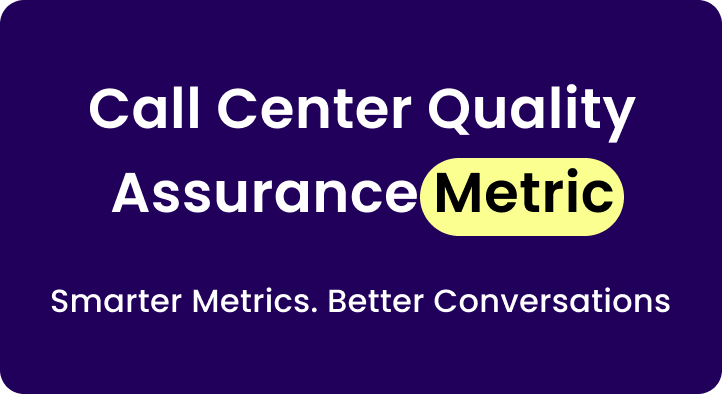In the dynamic landscape of agent sales coaching, a transformative revolution is underway, comparable to the shift from 2G to 5G and the emergence of blockchain technology.
In an era marked by rapid technological progress, the persistence of outdated sales coaching methods raises a compelling question:
Why are we still dependent on archaic practices?
While sales coaching is crucial for enhancing agent performance, it has failed to keep pace with technological evolution.
The image of a coach with a clipboard sitting beside an agent with a headset splitter seems like a relic from the past, despite the shift from paper to digital formats.
In this guide, you’ll find:
- What traditional sales coaching lacks?
- The Integration of AI in sales coaching
- Automating sales coaching feedback
- Achieving nirvana with AI speech anaalysis and live feedback
- Self-learning and human importance
Table of Contents
A. The inefficiency of traditional sales coaching
Traditional sales coaching methods, often involving the review of only a handful of calls from a vast pool, showcase their inefficiency in today’s fast-paced environment.
The need of the hour is to leverage technology and available tools to modernize and enhance sales coaching practices.
B. Stepping into the future: The integration of AI in sales coaching
The first step towards modernization involves harnessing call transcription tools.
Even in basic call center setups, VOIP technology records calls that can be transcribed using low-cost or free tools.
This transcription serves as the foundation for AI to create a more effective sales coaching framework.
Teaching an AI model, such as a Large Language Model (LLM), to comprehend call scripts, QA frameworks, and effective communication can automate the sales coaching process.
Feeding the AI with sales coaching insights enables it to align with coaching styles, bringing agent coaching firmly into the 21st century.
C. Automating sales coaching feedback
Looking back at sales coaching sessions from just ten years ago, a time dominated by BlackBerrys and where electric cars were mere fantasies, it’s evident that coaching methodologies within call centers have remained surprisingly stagnant.
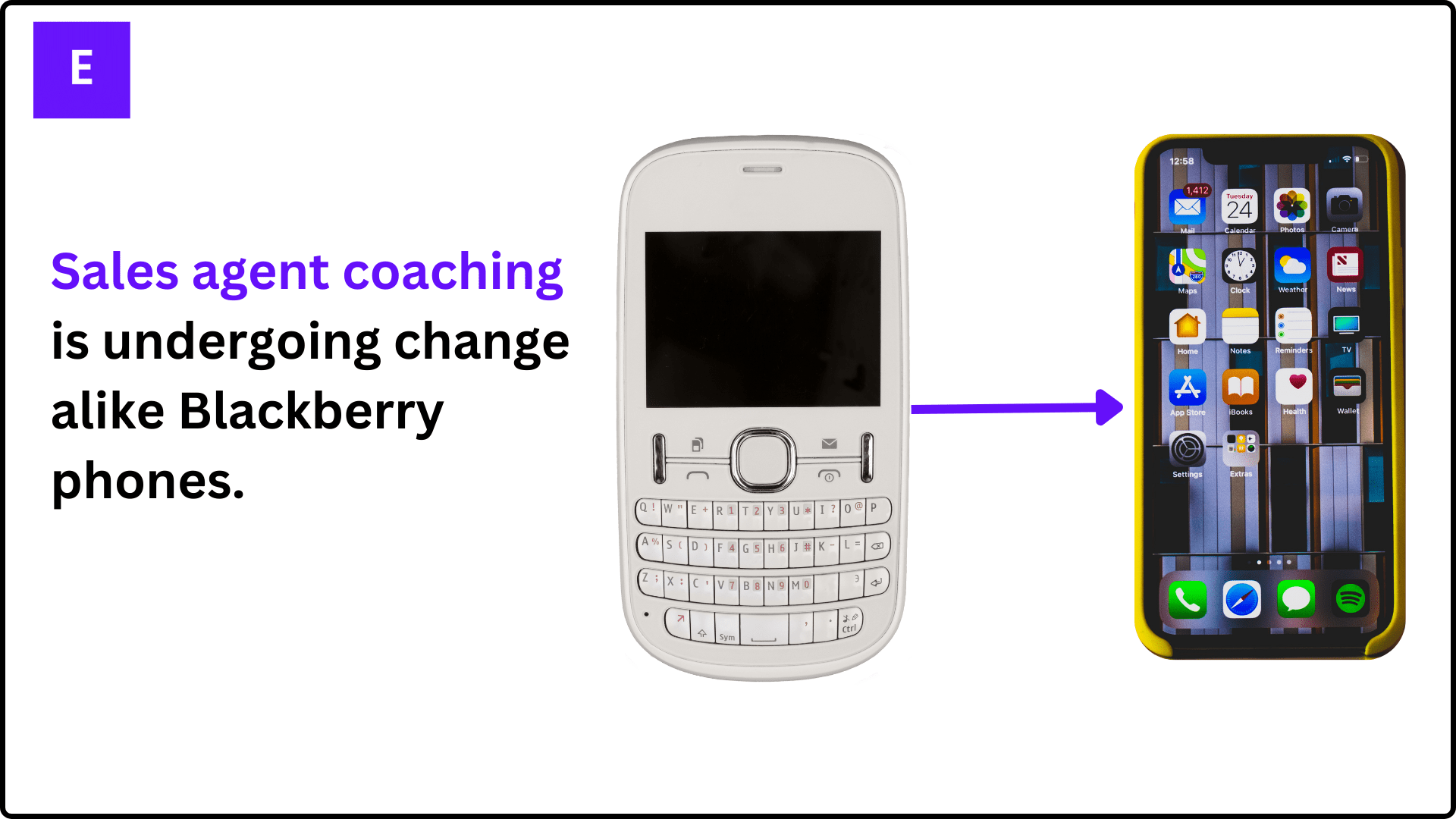
The subsequent step focuses on automating the feedback process.
Envision a world where every agent call is transcribed, analyzed by an AI-trained model, and automatic feedback is provided based on performance.
This system identifies areas for improvement in real-time, guiding agents on how to enhance customer interactions.
D. Embedding sales coaching and ensuring skill retention
Ensuring that newly acquired skills become second nature to agents is the most challenging aspect of sales coaching.
Here, speech analytics, coaching metrics and technological tools play a vital role.
These tools track and visualize how consistently an agent applies learned skills, offering tangible evidence of progress.
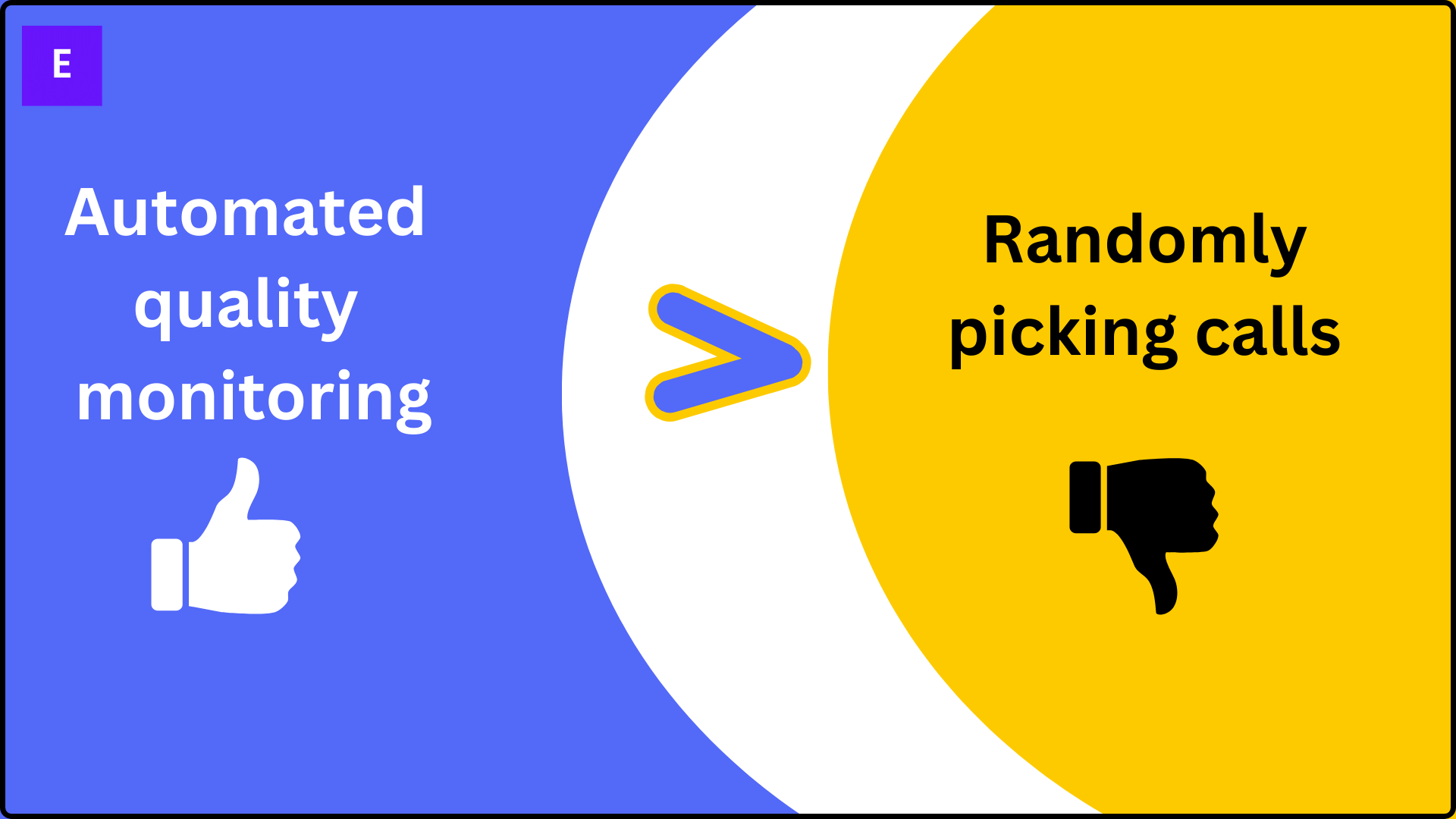
E. Achieving nirvana with AI speech analysis and live feedback
The ultimate goal is to provide live sales coaching feedback during calls.
Integrating a trained sales coaching LLM with AI speech analysis allows agents to receive live prompts and guidance, essentially having a coach by their side at all times.
This approach has the potential to revolutionize customer experience, ensuring agents are always equipped with the right information and strategies.
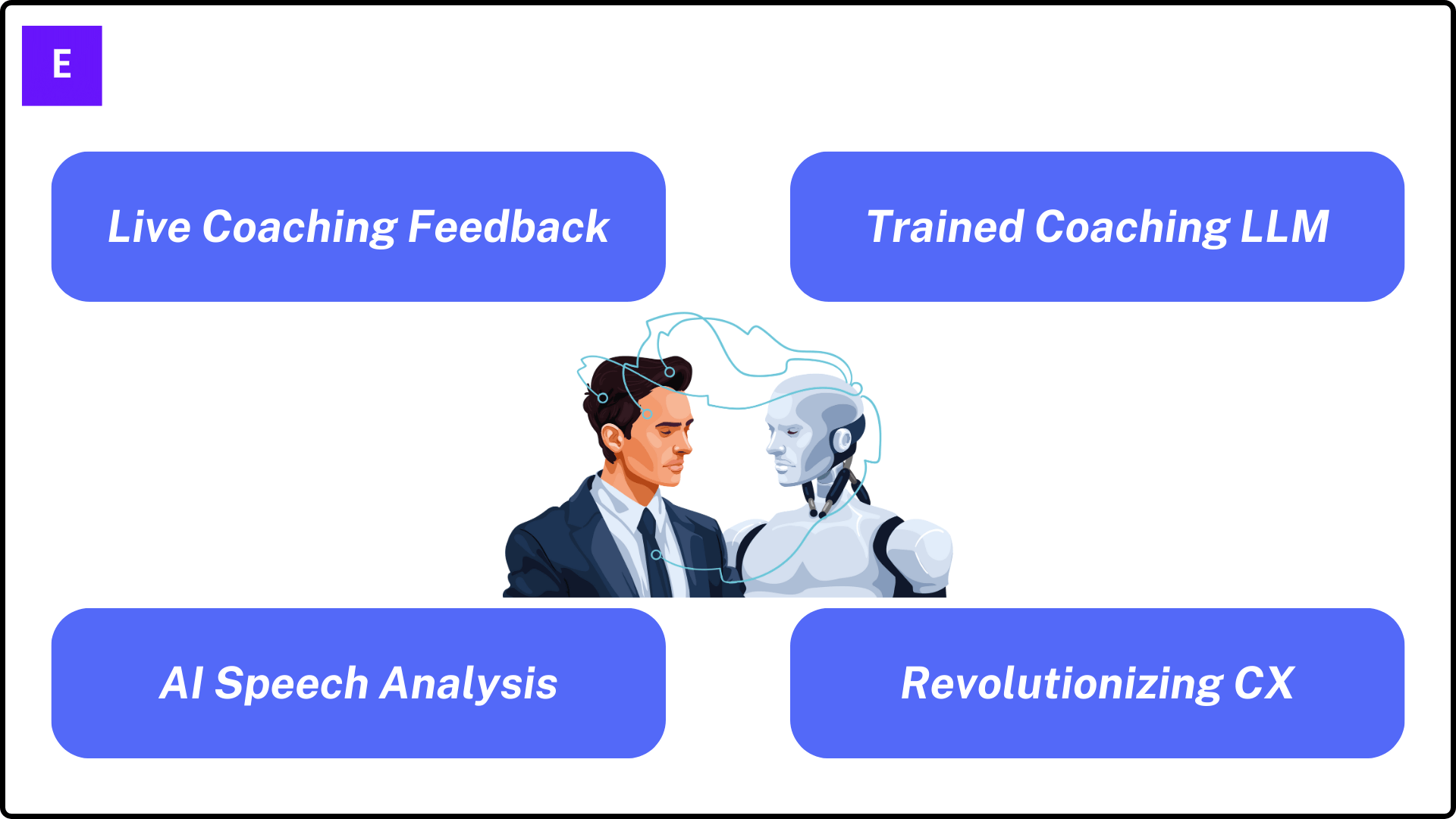
F. Leveraging technology for self-learning
Self-learning is another area where technology significantly impacts sales coaching.
Assigning agents to review their own calls or those of their peers and grading them using Quality Management (QM) or Quality Assurance (QA) tools allows agents to actively participate in their own development.
This method is particularly effective in quickly addressing performance dips and reinforcing positive behaviors.
G. The human element: The key to successful tech-driven sales cooaching
While technology enhances coaching’s efficiency and effectiveness, the human element remains irreplaceable.
Just as car technology advancements have not eliminated the need for a human driver, coaching’s essence cannot be fully automated.
Technology serves as a tool to augment, not replace, the human touch in sales coaching.
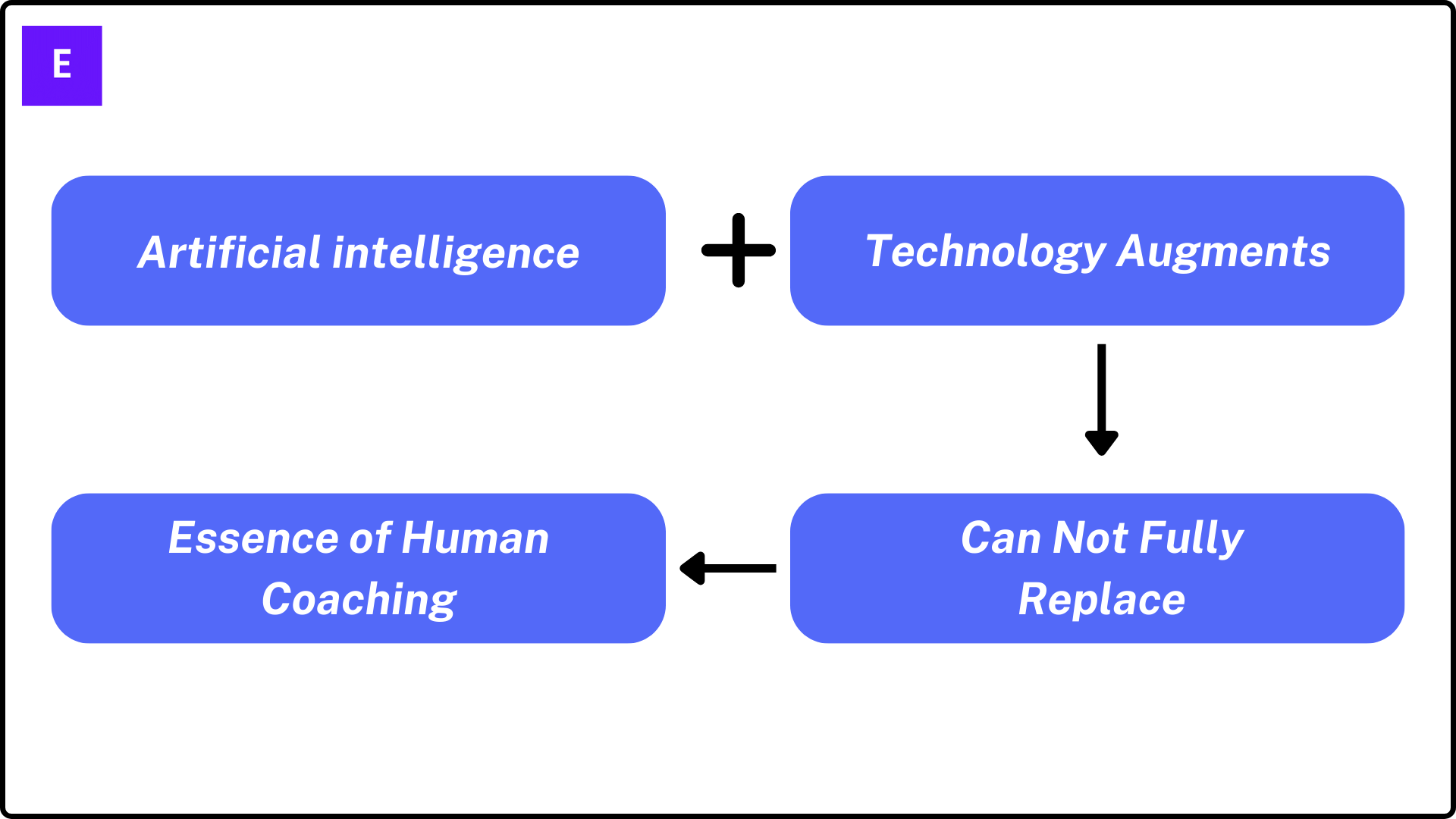
H. Embracing the future
As we stand on the brink of a new era in agent sales coaching, the integration of AI and agent assist technologies is not just the future; it’s the necessary next step.
By embracing these tools, we can transform coaching from a stone-age practice into a modern, efficient, and highly effective process that drives agent performance and improves customer experience.
The time to build this future is now, not tomorrow. Let’s not wait for the future; let’s build it now.
Conclusion
In conclusion, the future of agent sales coaching is undeniably intertwined with the relentless advance of technology.
The journey from outdated sales coaching methodologies to a tech-driven, efficient, and highly effective coaching process is an imperative step for call centers and customer service industries.
The shift from reviewing a mere handful of calls to leveraging AI-driven tools that can transcribe, analyze, and provide real-time feedback represents a paradigm shift in coaching practices.
The integration of AI and agent assist technologies offers a promising path to revolutionize the entire sales coaching landscape.
As we stand at the precipice of this transformative era, it is crucial to recognize that technology is not intended to replace the human element in sales coaching but to augment it.
Just as a driver remains essential despite advancements in car technology, the human touch is irreplaceable in sales coaching.
The potential of AI in providing live coaching feedback during calls, ensuring skill retention, and empowering self-learning among agents is immense.
This evolution is not merely a futuristic vision; it is a necessary and timely transition that can elevate agent performance and, consequently, enhance the overall customer experience.
By embracing these cutting-edge tools and methodologies, we have the opportunity to break free from the shackles of archaic sales coaching practices.
The call to action is clear: let’s not wait for the future; let’s build it now.
As organizations prioritize the integration of AI and agent assist technologies, they are not just investing in a trend but are actively shaping a future where coaching becomes a dynamic, responsive, and indispensable component of customer service excellence.
The time is ripe to usher in a new era of sales coaching, where technology empowers agents to thrive, adapt, and deliver unparalleled service in a rapidly evolving digital landscape.
FAQs
What is the future of AI in coaching?
AI in coaching will evolve to provide personalized, data-driven insights, enhancing self-awareness and skill development. Virtual coaches may offer real-time feedback, fostering continuous improvement and making coaching more accessible.
What is the future of customer service with AI?
AI in customer service will streamline interactions through chatbots, voice assistants, and predictive analytics. Enhanced automation, personalized responses, and quicker issue resolution will elevate customer experiences, improving overall satisfaction.
How are coaches using AI?
Coaches are using AI for data-driven insights, personalized feedback, and virtual simulations. AI tools analyze performance metrics, track progress, and provide tailored recommendations, enhancing coaching effectiveness and efficiency.



 On this page
On this page
